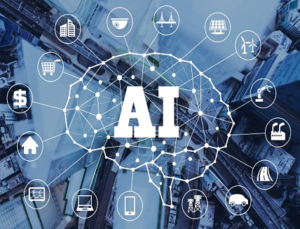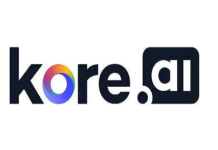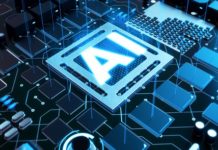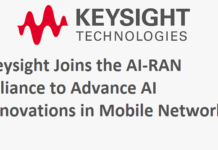
In 2012, IBM’s supercomputer Watson competed on Jeopardy against former winners and won. In 2017, Google beat an expert in the game of Go – one of the oldest and most complex games ever made.
AI is a broad term for machines that can think like humans – or better than we do. With AI, we could potentially create more advanced healthcare technologies that would diagnose and treat patients better than doctors can today! But why stop there? AIs could potentially even replace doctors altogether but this would come at a high moral cost.
So what is Artificial Intelligence?
Artificial Intelligence is essentially technology that makes machines capable of performing tasks that usually require human intelligence – such as visual perception, speech recognition, decision-making, and translation between languages.
How AI will change healthcare
There are two main goals for implementing AI in healthcare: 1) replacing human tasks 2) improving human tasks.
Replacing Human Tasks
The opportunity to free up doctors’ time by automating specific processes would be an immense help. Radiologists could have their day saved by AI reading x-rays for them. While doctors are great at diagnosing diseases through years of experience, machines could do better because they can scan thousands of images in seconds without getting tired or bored. Not only that, but reports would be available to the doctor instantaneously! This technology already exists today. A robot called IDX-DR has reduced the time it takes to read x-rays by 85%. And IBM’s supercomputer is helping diagnose brain cancer with 97% accuracy.
Improving Human Tasks
Doctors are limited in how many patients they can see every day. Still, an AI assistant could help them improve their workflows by creating patient reports and prescribing treatment plans. It could even help doctors figure out which diagnosis or treatment method would be most effective for each patient! For example, recent studies have shown that artificial intelligence outperforms radiologists at diagnosing breast cancer. This technology is still 5-10 years away because it will require a deep knowledge of medical expertise to create programs that recommend treatments for specific cases. Additionally, there may come the point where machines can diagnose better than humans because of that 85% reduction in time to read an x-ray.
Once these programs are built, people will have more time for other tasks – even creative ones. Instead of seeing 30-40 patients every day, doctors could be writing journal articles or building new technologies to help improve healthcare! Some doctors are already using their free time by hosting podcasts to discuss interesting cases with other physicians worldwide.
Will artificial intelligence put doctors out of work?
Yes and no. Computers can indeed do things better than humans can. And this is especially true if you define “better” as being efficient at calculations or having a flawless memory. Even so, it’s an overstatement to say that doctors will be replaced by AI soon.
No doubt, machines will probably replace some specific tasks in which they are more efficient than humans. But the real moral dilemma comes when you consider how many lives could be saved if these AIs are used for healthcare instead of other purposes like military or weaponry. To answer this question, I’ll paraphrase what Dr. David Harel said about life-saving: Without healthcare, we die, and with healthcare, we live longer lives and accomplish much more than we ever could have without it. This is why healthcare should never become a commodity. Nor should it be run as a business, even if well managed, because steady profits cannot justify its non -stop critical role in our lives. The goal of healthcare professionals should be to improve the quality of life for all people instead of satisfying investors.
AI in Different fields
Unfortunately, it seems that some companies are already using artificial intelligence for military purposes. Not only is this immoral, but it may also degrade the image of AI so much that humans will never trust these machines again. If this happens, machines won’t get a chance to prove their value in helping society because they’ll always be perceived as threats instead. We can still prevent this from happening, though, if we try hard enough with the help of RemoteDBA.com.
Machine learning is the latest trend in AI, and it has become much easier to implement machine learning algorithms because of advances in hardware resources. It requires much less time to train deep neural networks than ever before using GPUs.
AI improving healthcare
There are many areas where machine learning can improve healthcare. For example, deep learning software might analyze medical imaging’s massive volume of data to catch abnormalities earlier. Although better early diagnosis of diseases is a potential benefit from applying artificial intelligence technologies within medical-imaging applications, treating a patient afterward is still far from clear.
Lately, new analytical techniques have been developed which use an individual patient’s data rather than pooling them with large groups of patients as had been done previously. In oncology research, it has been shown that such an approach improves the prediction of patient outcomes, and it is known as “personalized medicine.”
AI is already improving healthcare in many ways. One example is advanced robotics for surgery. Robots can perform specific surgical tasks with better accuracy and precision than humans. For this reason, many hospitals have adopted a number of robot-assisted surgeries over the past few years.
Although these robots are intelligent enough to carry out a wide range of minimally invasive procedures, they still require a skilled surgeon’s supervision while being guided by AI algorithms that make desired movements & positions more precisely.
Advantage
Another advantage is that patients recover faster from robot-assisted surgery because there are fewer incision points required during the course of a procedure by robots, resulting in less blood loss and reduced need for anesthesia. AI can be used in medical imaging analysis [to find abnormalities earlier]. Since the amount of data produced is vast, it would be helpful to use machine learning algorithms to detect these abnormalities. This could then lead to better diagnosis and early treatment if necessary.
Although better early diagnosis of diseases is a potential benefit from applying artificial intelligence technologies within medical-imaging applications, how a patient will actually be treated afterward is still far from clear. There’s also a big hype around personalized medicine where health care could change radically with AI by ‘learning’ about individual patients which variables significantly influence their healthy/disease states.


















